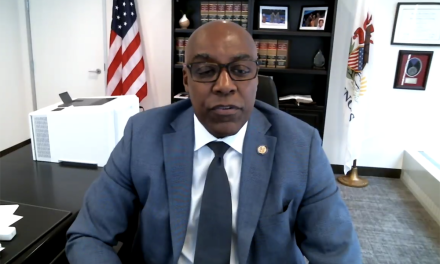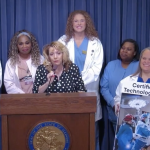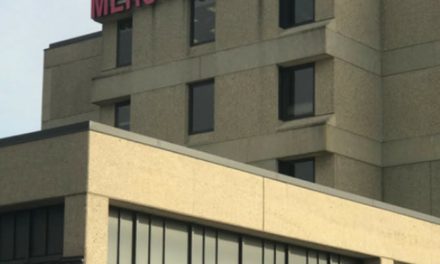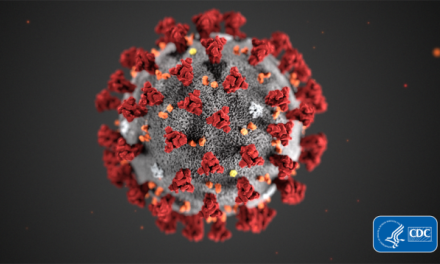
On the record with U.S. Rep.-elect Lauren Underwood

Healthcare played a starring role in Democrat Lauren Underwood’s upset victory over U.S. Rep. Randy Hultgren, R-Plano.
Underwood, a public health nurse who previously worked at the Department of Health and Human Services and NextLevel Health, said she entered the race because Hultgren broke a promise to protect those with pre-existing conditions by supporting the repeal of the Affordable Care Act.
“I got really upset and decided to run,” said Underwood, the youngest black women ever elected to Congress.
Underwood said she’s worked with patients who rely on ACA coverage to receive treatment. She also has her own pre-existing condition – a heart condition that she was diagnosed with as a child. While it’s under control, Underwood said she knows how expensive coverage could be if the ACA’s protections went away.
In a recent interview with Health News Illinois, Underwood spoke about ACA enrollment, working with Republicans and single payer healthcare.
Edited excerpts are below.
HNI: As you enter Congress, what are your healthcare priorities?
LU: It’s very clear that we have to move to stabilize the Affordable Care Act. I think of the Affordable Care Act as kind of like a friend who has been in a bar fight. It’s still standing, but hobbling down the street, bloody and bruised, maybe has a cracked rib. It needs attention to be fully functional.
In the 14th District in Illinois, we have 37,000 people who have coverage on the Marketplace. They are looking for stability in that program in order to plan for any future needs they have.
At the same time, it’s very clear that premium prices are too high. Prescription drug prices are too high. And the public is looking at us to act.
And so, let’s make sure there is no threat to people with pre-existing conditions losing their coverage. I think the Affordable Care Act has been very clear on that. But obviously the Trump administration has been taking a lot of action at the executive level, through regulation, weakening those statutory protections provided under the ACA. That’s my number one priority.
I also mentioned prescription drug prices. It’s very clear that we have reached a tipping point on that issue, and I look forward to participating in those conversations.
And then I would love to see some action on mental healthcare in this country. My vision is that we would have mental health clinics in every strip mall all across northern Illinois.
HNI: In what ways do you think the ACA could be improved?
LU: The budget for outreach and assistance like navigators has been cut dramatically. We have seen a dramatic drop in the number of enrolled individuals. That’s problematic. So restoring funding is one opportunity.
The other opportunity is to properly fund risk adjustment programs. In the Affordable Care Act, there was a pool of money that was made available to help make insurance plans whole in the event that, let’s say, all the healthy 18-year-olds go to Plan A, and all the cancer patients go to Plan B. There is a pool of money that would help make Plan B whole. That pool of money has been authorized, it’s not new dollars. It just has not been applied to the program.
… I realize both of those examples are not things that would be front page of a newspaper. But they are critical to making sure this program can continue to function in the long term and can be available and attractive coverage options for Americans as they are trying to make decisions about their healthcare coverage.
HNI: After six weeks, sign-ups for the ACA are down more than 20 percent in Illinois. Why do you think that is?
LU: There are so many people who need help. The navigators, the assisters, they were often very busy and had full caseloads talking with people to explain their coverage options – particularly in a state like ours where this is a Medicaid expansion. There are a lot of people that are on those lines of eligibility, and are not sure which program they qualify for, or everyone in their household qualifies for. Without those resources, full communities are not being touched or reached. I think there is a large segment of the population where picking health insurance coverage is not always a top of mind issue. They need reminders.
That’s why when I was in the Obama administration, we had many surrogates who would go on morning shows, radio shows, etc. to do that kind of targeted outreach to the segments of the population where we knew they might need that special boost.
I remember there was a heavy focus on making sure moms would talk to their young adult children to make sure they were enrolling in coverage.
Whatever was needed, the Obama administration certainly had a commitment to doing. The Trump administration has made it very clear they are not interested in doing that.
HNI: There is a growing push from some of your Democratic colleagues for a single payer healthcare system. Do you think that’s the best way to boost coverage?
LU: It’s been interesting to me that many, including many Democrats and progressives, view this as a binary choice – meaning Affordable Care Act or single payer healthcare. I completely reject that framework. And that’s where I sort of have a little bit of a rub with some of those advocates because, no, we have millions of Americans counting on the coverage provided by the ACA, who enjoy the protections: pre-existing condition protections, keeping your kid on the insurance plan until 26 protection, annual lifetime limit protections. These things are very popular and are within the law. So that kind of approach is one that for me is very dangerous. Meaning let’s just throw away the ACA and focus on the full Medicare for All or whatever.
And so I think we should be able to have a conversation about strengthening or shoring up the Affordable Care Act. And making sure we are working towards expanding healthcare coverage. Because I believe it’s ridiculous in 2018 that we have so many people in this country who are uninsured. And it’s not just a function of those states who have chosen not to expand Medicaid the way Illinois has. And so I think there is a responsibility of the Congress to be forward thinking about our healthcare system in ways to make sure that we can reduce the number of uninsured Americans.
HNI: While Democrats flipped the U.S. House, Republicans still control the Senate and there is still a Republican president. Are there certain healthcare areas where you think bipartisan agreement can be reached?
LU: There is opportunity for bipartisan agreement on lowering prescription drug prices. I think there is opportunity for bipartisan agreement on pre-existing condition coverage, a lot of the ACA fixes. The Affordable Care Act has never been more popular than it was in the year 2017, and the year 2018. And it’s very clear that the electorate has rejected the Republican approach towards healthcare in this country. I think we are going to be in an environment where we can see folks joining in to help make sure their constituents have the healthcare coverage they are seeking.
Healthcare is not an inherently partisan issue in my mind. The way we can offer and provide services and pay for the healthcare may be partisan. But, you know, a mother trying to afford insulin for her elementary school age daughter is not an inherently partisan issue.
This article first appeared in the Health News Illinois daily email newsletter. Sign up for your free trial here.









